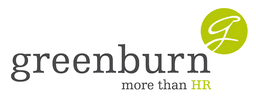|
As the UK roles out the COVID vaccine, primarily the Oxford-developed vaccine AstraZeneca, there are already rumblings about individuals refusing to take it.
Public Health authorities have advised pregnant women or those who are planning to become pregnant within three months of the first dose should not take the vaccine. There are also warnings for those with certain allergies to avoid taking the vaccine. But what of the infamous anti-vaxxers or those conspiracy theorists who believe taking the vaccine is a Government ploy to insert tracking devices into our systems? In the case of an employee refusing to have the vaccine (out-with the medically approved refusals), can the employer do anything about it? ACAS have taken the view that, no, employers are not able to require their employees to take the vaccine and should listen to employee concerns to understand where their refusal is founded. However, if the reasons for refusing the vaccine are unreasonable then employers can take disciplinary action - that seems a fine line to tread, so what could be considered 'unreasonable'?
0 Comments
According to Deimantas Kubilius v Kent Foods Ltd, yes.
An Employment Tribunal decided that the decision by Kent Foods Ltd to dismiss Mr Kubilius after he refused to wear his face mask during the first lockdown was fair. The background of the case was, Mr Kubilius, a lorry driver for Kent Foods Ltd primarily transported goods to and from the Basildon depot and Tate & Lyle's Refinery. During the first lockdown T&L put a temporary Health & Safety measure in place, requiring all employers, contractors and visitors to wear a face mask when on-site to reduce the risk of Coronavirus infection. After visiting T&L in May 2020, Kent Foods Ltd was notified that Mr Kubilius had been banned from the site after repeatedly refusing to put a face mask on when asked, stating that "he was in his cab and didn't have to". Mr Kubilius argued that wearing a face mask was not legally enforceable even in the workplace, and that he had done nothing wrong... The 19th February 2021 will long have reverence in Employment Law in the UK and abroad. It will be known as the day the UK Supreme Court made the decision to dismiss Uber's final appeal (Uber BV and others v Aslam and others [2021] UKSC 5) in a landmark judgment.
The case against Uber, in regard to employment rights, has been in the courts since 2016. In which Uber claimed that the individuals who worked for them were third-party self-employed contractors and therefore didn't qualify for a number of employment rights under the Employment Rights Act 1996, the National Minimum Wage Act 1998 and the Working Time Regulations 1998. In Scotland, and the UK, there are long-standing tests in law to determine whether an individual is an employee or a contractor. Let's have a look at them here: |
Copyright © 2024
